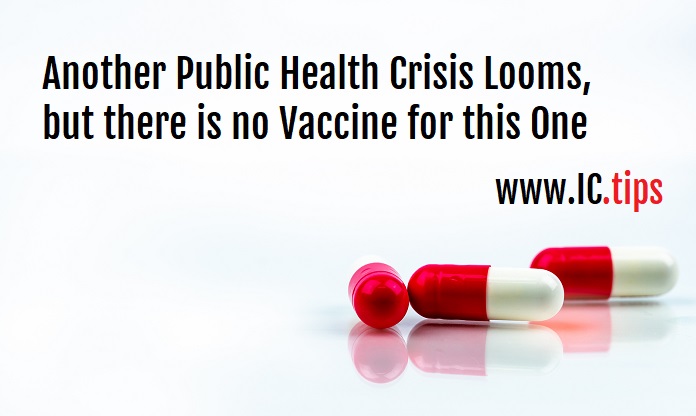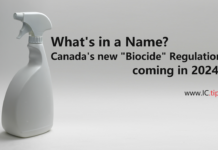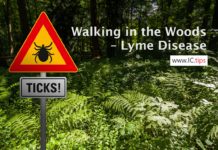Abstract
Antimicrobial resistance (AMR) is an increasing threat to global public health; as such, one might expect there to be a handful of solid solutions, backed by government initiatives and global health strategies and interventions. However, this is not the case. As prevalence and morbidity rates continue to increase globally, experts have noticed the ways in which COVID-19 has complicated the ongoing challenge of AMR. AMR has not received the media coverage of COVID-19, nor the urgency the situation requires, hindering progress through limited awareness of the situation. Governments and the media need to become more involved in combatting AMR, leading to gradual progression in novel approaches and treatments that will save millions of lives.
Main Article
Antimicrobial resistance (AMR) has been a consistent, prominent threat to the health of citizens globally, and the on-going COVID-19 pandemic has caused the number of cases to escalate (Ormiston, 2021). In 2014-15, England dealt with 64,300 admission cases of AMR, and that number jumped to 93,700 in 2019-20 (Lythgoe, 2021). Leading experts in infection prevention and healthcare are warning the public about the increase in AMR; with a higher incident rate regarding AMR, and neglect of the issue due to COVID-19, the chief executive of Antibiotic Research UK, Professor Colin Garner warns that “we may be facing another pandemic, this time without the possibility of a vaccine” (Ormiston, 2021).
we may be facing another pandemic, this time without the possibility of a vaccine
Like COVID-19, AMR leads to the spread of disease, and the potential for a global outbreak; however, Professor Garner warns that “while COVID-19 is treatable through vaccination, there are no vaccines to treat the most common resistant infections.” AMR is an occurrence in which bacteria builds a substantial resistance to any treatments designed to fight certain infections (Ormiston, 2021). In other words, an antibiotic that was once effective against a specific bacterium, is rendered useless against the resistance built up within the body. Dr. Bruce Hirsch says that AMR is a continuous issue in his practice in New York. “The germs are just so much smarter than they used to be. Our patients are sicker, more immunosuppressed with frequent antibiotic exposure,” he says (Hirsch, 2021).
The germs are just so much smarter than they used to be
The occurrence of an AMR is moreover a serious concern due to the development of superbugs that follows (Ormiston, 2021). Said superbugs, such as MRSA and Candida Auris (Masters, 2021), are resistant to all antibiotics and complicate broader aspects of healthcare. Cancer treatment, for example, may be stalled as patients who have developed these superbugs become increasingly vulnerable to infection, making surgery risky (Ormiston, 2021).
Coronavirus: Takeover of The Global News
The COVID-19 pandemic has undoubtedly overwhelmed global news coverage; the constant breaking news leaves little room for coverage of other world events. This is why, despite the seriousness of the issue, this article will be the first time that many readers are introduced to the prevalence of AMR. The COVID-19 pandemic has not only hindered the treatment of AMR due to overwhelming of the global news sphere, but also through the complex limitations PPE shortages pose for healthcare staff and patients.
Case Increases in Virginia: Candida Auris
Masters (2021) reports on an ongoing incident involving Candida Auris – an emerging fungal infection – in the Virginia medical sphere, labelled by the U.S. Centers for Disease Control and Prevention as a “serious global health threat”. Candida Auris poses a significant risk to patients with pre-existing conditions that have caused their immune systems to be weakened. For those with adequate immune systems, the infection is a significant concern due to its longevity and resistance to antifungal drugs.
There have so far only been 37 cases of Candida Auris in Virginia since July of 2020, however, state health commissioner, Dr. Norman Oliver, warns in a clinician letter released on May 7, 2021 that this is more than a ten-fold increase in cases in comparison to the past two years. The CDC reports that 30-60% of patients infected with Candida Auris will die (General, 2019).
Shaina Bernard, the Antimicrobial Resistance Coordinator for the Virginia Department of Health’s Healthcare-Associated Infections Program, warns that the cases in Virginia are “consistent with what we’ve seen in neighboring states and one of the hypotheses is that it’s due to personal protective equipment and the conservation strategies that have been happening during the COVID-19 pandemic” (Masters, 2021).
For decades, public health officials have expressed worry about the growing number of bacteria that are labelled as multidrug-resistant organisms (MDROs) (Masters, 2021). With the emergence of COVID-19, experts have grown concerned with how the unique circumstances of the pandemic, such as isolation indoors and cleaning products, has allowed for MDROs to spread with ease. For instance, for those living in long-term care facilities, the shortage of personal protective equipment has eased the spread of Candida Auris and other MDROs. A limited supply of N95 masks and gowns has forced staff to reuse the PPE that was designed to be disposable. Dr. Jim Wright, medical director of Canterbury Rehabilitation & Healthcare in Virginia, warns that the low supply and reuse of PPE has staff spreading infections from patient to patient. Sarah Lineberger, the manager of the Virginia Department of Health’s Healthcare-acquired Infections program, notes that, similarly, the change to cleaning products intended to eliminate COVID-19 neglects prevention of MDROs (Masters, 2021).
Case Increases in England
Royal Bolton Hospital in England recorded an increase in admissions in relation to antibiotic resistance (Ormiston, 2021). Just like in the U.S., increased incidence of AMR has sparked warnings from British healthcare experts. Researchers have warned that the increase in AMR could pose an even greater health risk than that seen with the COVID-19 pandemic without urgent action towards prevention.
According to data released by NHS, there was a 5% increase in AMR-related admissions at Royal Bolton Hospital in the past year. In England, there were around 93,700 admissions nationally in 2019-20, a significant increase from 90,200 in the previous year. At University Hospital of Morecambe Bay NHS Foundation Trust in 2019-20, NHS data recorded an increase from 1,240 AMR related admissions in the previous year to around 1,515 (Lythgoe, 2021). More shockingly, the number has increased by nearly 1,200 cases from the recorded 310 in 2014-15.
Long-Term Outlook
It is estimated that by the year 2050 AMR could be responsible worldwide for one human death every three seconds (O’Neil, 2016). Unfortunately, despite this projection, very little has been done on the path toward combating AMR in patients.
Wellcome (2021) warns that with infectious disease escalation, aided by AMR, the world needs to gain control of the issue, especially in communities that face higher prevalence and risk due to illness and social factors such as socio-economic status, race, and ethnicity. They emphasize that drug-resistant infection is a global crisis, killing hundreds of thousands annually. In low- and middle- income countries, many of the new complexities emergent during the COVID-19 pandemic are not just a recent phenomenon, but a long-existing reality. The quicker that action is taken to address AMR, the more lives that will be saved.
The quicker that action is taken to address AMR, the more lives that will be saved
A spokesperson for the Department of Health and Social Care in England suggests that public health officials, the government, the media, and the general population alike use COVID-19 as a point of reference regarding the possible large-scale serious consequences of disease outbreaks (Ormiston, 2021).
Whose Job is Mitigation of Antimicrobial Resistance?
Time is running out, and if we are going to solve the problem of antibiotic resistance, action must be taken now. Leading experts in the field have called for larger-scale interventions imposed by the government and public health officials globally.
Leading experts in the field have called for larger-scale interventions
The British Society for Antimicrobial Chemotherapy (BASC) notes the risk that AMRs pose to the completion of cancer treatments, putting forward a campaign to prevent AMR. President-elect of BASC, Dr. David Jenkins states that “AMR increasingly presents a fundamental challenge to the continuing ability of the NHS to provide healthcare in areas such as intensive care, cancer services, and surgery.” The charity calls upon the government to take more responsibility in fighting AMR, suggesting a cabinet minister be appointed with responsibility for the coordination of efforts toward prevention.
The media can likewise use its power of influence to eradicate any secrecy surrounding AMR in the public sphere. A spotlight needs to be shone upon the challenges that healthcare professionals are facing and the consequences of inaction. The tendency to maintain a wall of secrecy between the reality of AMR and the general public has contributed to the widescale inaction towards prevention (Adams et al., 2018). The media can take a step toward removing this wall, thus initiating further research and gradual improvements and progress.
According to Dr. Margaret Chan, then WHO Director-General, “consumer groups and civil society can play an important role in combating antimicrobial resistance. They are important movers, shakers, and front-line players, especially in this age of social media” (Chan, 2015). This was the precise call to action that inspired me and others to roll up our sleeves and get involved in creating The Infection Prevention Strategy (TIPS). Through this non-profit organization, we created a model of information sharing that makes the process of vetting new technologies, implementing successful programs, and inspiring innovation more efficient, more accessible, and more collaborative. In short, TIPS is one of those movers, shakers, and front-line players Dr. Chan was looking for to raise the profile of AMR efforts through innovative services, diverse outreach, and social media strategies to reach a broad audience of researchers, clinicians, industry innovators, and laypeople.
Through the TIPS Science to Market Program, we are providing funding and assistance for promising front-line projects in the field to help the world find solutions more quickly, because the faster we find solutions, the more lives we can save.
Awareness of AMR has increased within the professional field but has yet to become prominent to the general public. Awareness is the initial step towards combating AMR, however, is not the end all be all. We must move forward with a sense of urgency in our initiatives to develop global standards and strategies for fighting antimicrobial resistance in order to save millions of lives.
One person can make a difference, and everyone should try.
– John F. Kennedy
Please take a moment to share this message, demand attention and fight the wall of secrecy that is hindering action.
As the TIPS motto says:
Join. Contribute. Make A Difference.
References
Adams, E., Quinn, M., Tsay, S., Poirot, E., Chaturvedi, S., Southwick, K., … & Haley, V. (2018). Candida auris in healthcare facilities, New York, USA, 2013–2017. Emerging infectious diseases, 24(10), 1816.
Chan, M. (2015). Address to G7 Health Ministers Meeting on Antimicrobial Resistance. https://www.who.int/director-general/speeches/detail/who-director-general-addresses-g7-health-ministers-meeting-on-antimicrobial-resistance
General Information about Candida auris. (2019). https://www.cdc.gov/fungal/candida-auris/candida-auris-qanda.html
Hirsch, B. (2021). Personal email.
Masters, K. (2021). Virginia medical facilities grapple with a new worry — a rise in drug-resistant fungus infections. https://www.msn.com/en-us/health/medical/virginia-medical-facilities-grapple-with-a-new-worry-e2-80-94-a-rise-in-drug-resistant-fungus-infections/ar-BB1gDXXw?ocid=BingNewsSearch
Lythgoe, G. (2021). More antimicrobial resistance admissions at Hospitals of Morecambe Bay Trust. The Westmorland Gazette. https://www.thewestmorlandgazette.co.uk/news/19272672.antimicrobial-resistance-admissions-hospitals-morecambe-bay-trust/
Ormiston, S. (2021). Warning after rise in hospital cases linked to antibiotic resistance in Bolton. The Bolton News. https://www.theboltonnews.co.uk/news/19271620.warning-rise-hospital-cases-linked-antibiotic-resistance-bolton/
Wellcome. (2021). Drug-resistant infections: transforming the global response. https://wellcome.org/what-we-do/our-work/drug-resistant-infections












